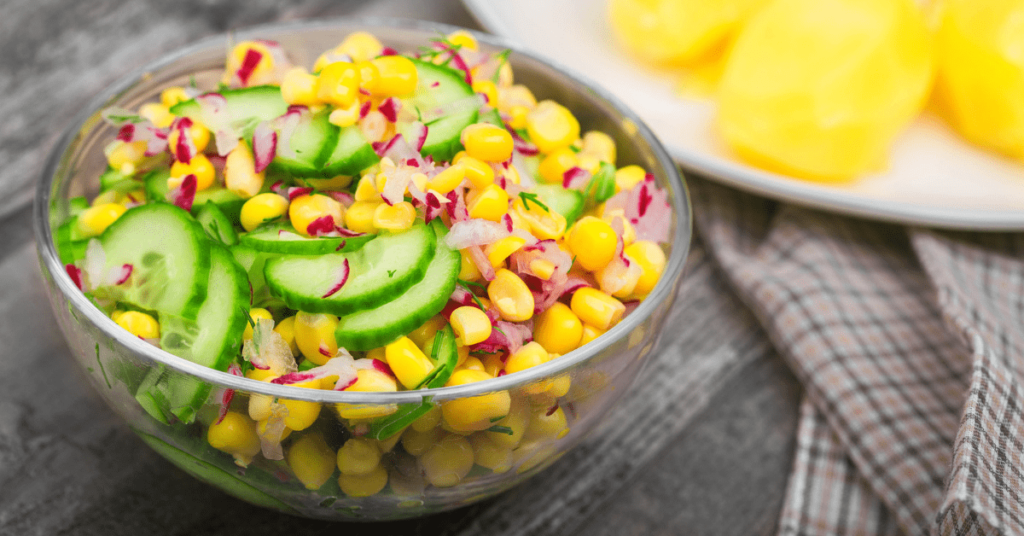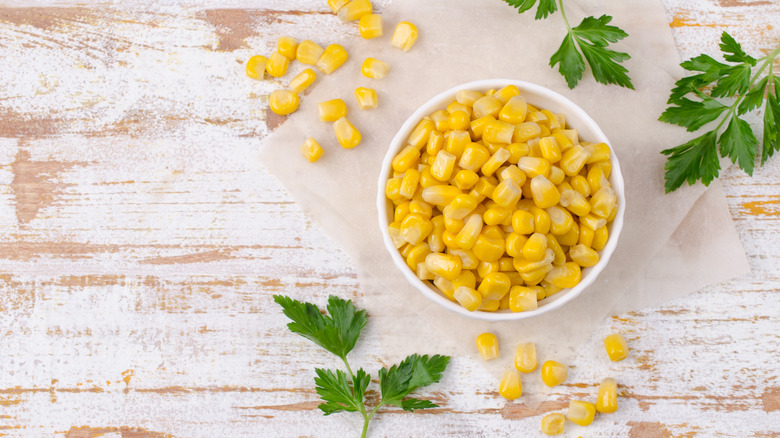-Sweet corn contains many health benefits, including the following:
- Rich source of fiber:
- Corn contains fibers that are not soluble in water such as hemicellulose, cellulose and lignin.
- Eating corn reduces the risk of heart disease and some types of cancer.
- Fiber intake contributes to promoting digestion and reducing digestive problems.
- Good source of protein:
- Corn contains high amounts of protein compared to other vegetables.
- Protein contributes to healthy weight loss by reducing hunger and burning more calories
- Rich source of antioxidants:
- Corn contains antioxidants such as lutein and zixanthin
- Eating corn contributes to maintaining healthy eyes and reducing the risk of certain diseases.
- Rich source of minerals:
-Corn Nutrition Facts:
Corn, also known as maize, is a versatile grain that offers several health benefits. Here’s what you need to know about its nutritional profile per 100 grams:
- Calories: 208 kcal
- Carbohydrates: 0 grams
- Fat: 11.5 grams
- Protein: 24.6 grams
- Vitamins:
- Vitamin B12: 149% of the recommended daily allowance (RDA)
- Vitamin D: 68% of the RDA
- Vitamin B3 (Niacin): 26% of the RDA
- Vitamin B2 (Riboflavin): 13% of the RDA
- Vitamin E: 10% of the RDA
- Vitamin B6: 8% of the RDA
- Vitamin B5 (Pantothenic acid): 6% of the RDA
- Vitamin B1 (Thiamine): 5% of the RDA
- Folate: 3% of the RDA
- Vitamin K: 3% of the RDA
- Vitamin A: 2% of the RDA
- Vitamin C: 0% (negligible)
- Minerals:
- Selenium: 75% of the RDA
- Phosphorus: 49% of the RDA
- Calcium: 38% of the RDA
- Sodium: 21% of the RDA
- Iron: 16% of the RDA
- Potassium: 11% of the RDA
- Magnesium: 10% of the RDA
- Copper: 9% of the RDA
- Zinc: 9% of the RDA
- Manganese: 5% of the RDA
Corn is rich in protein, healthy fats, and essential vitamins and minerals. It’s particularly high in vitamin B12, which supports cardiovascular health. Additionally, corn provides selenium, phosphorus, omega-3 fatty acids, and vitamin



